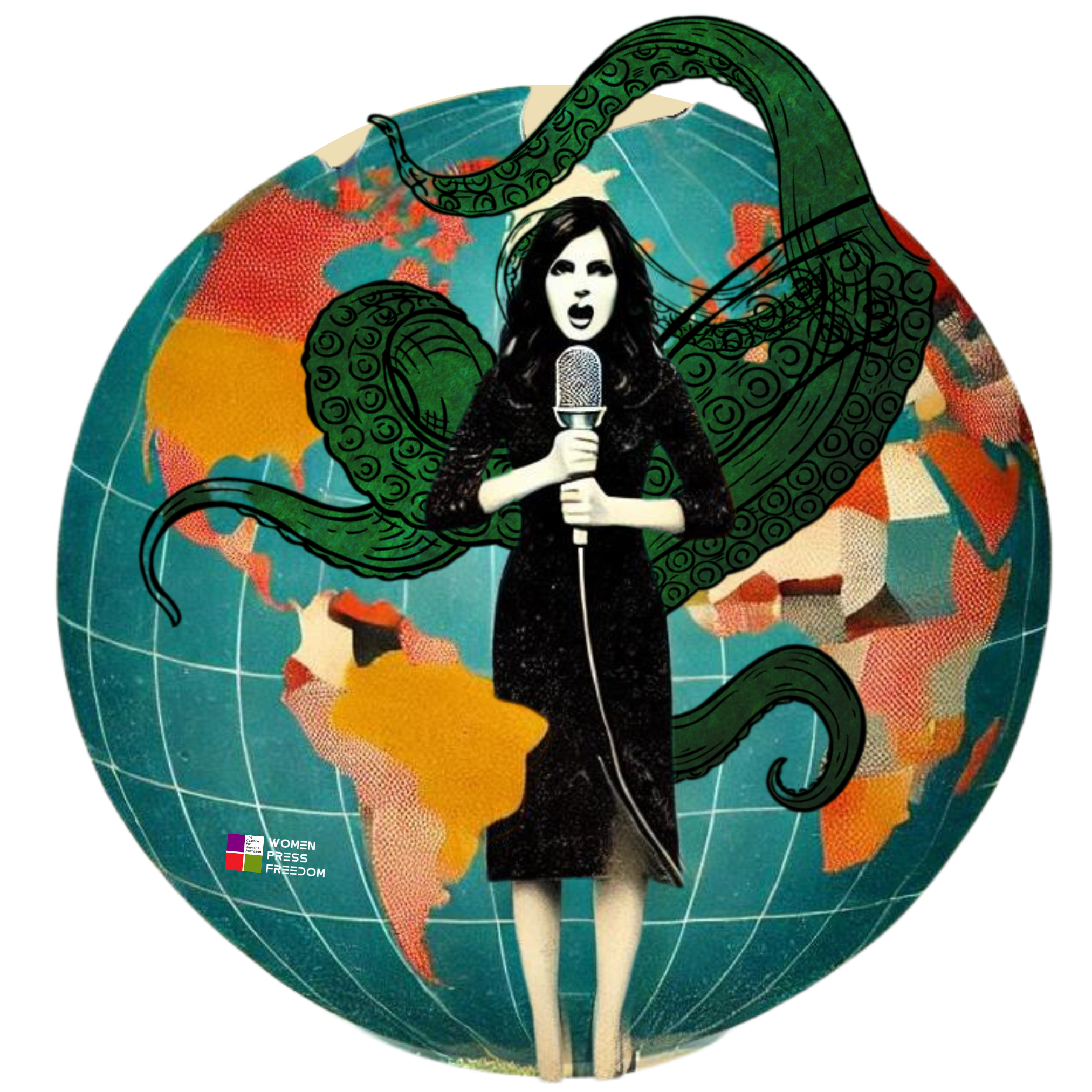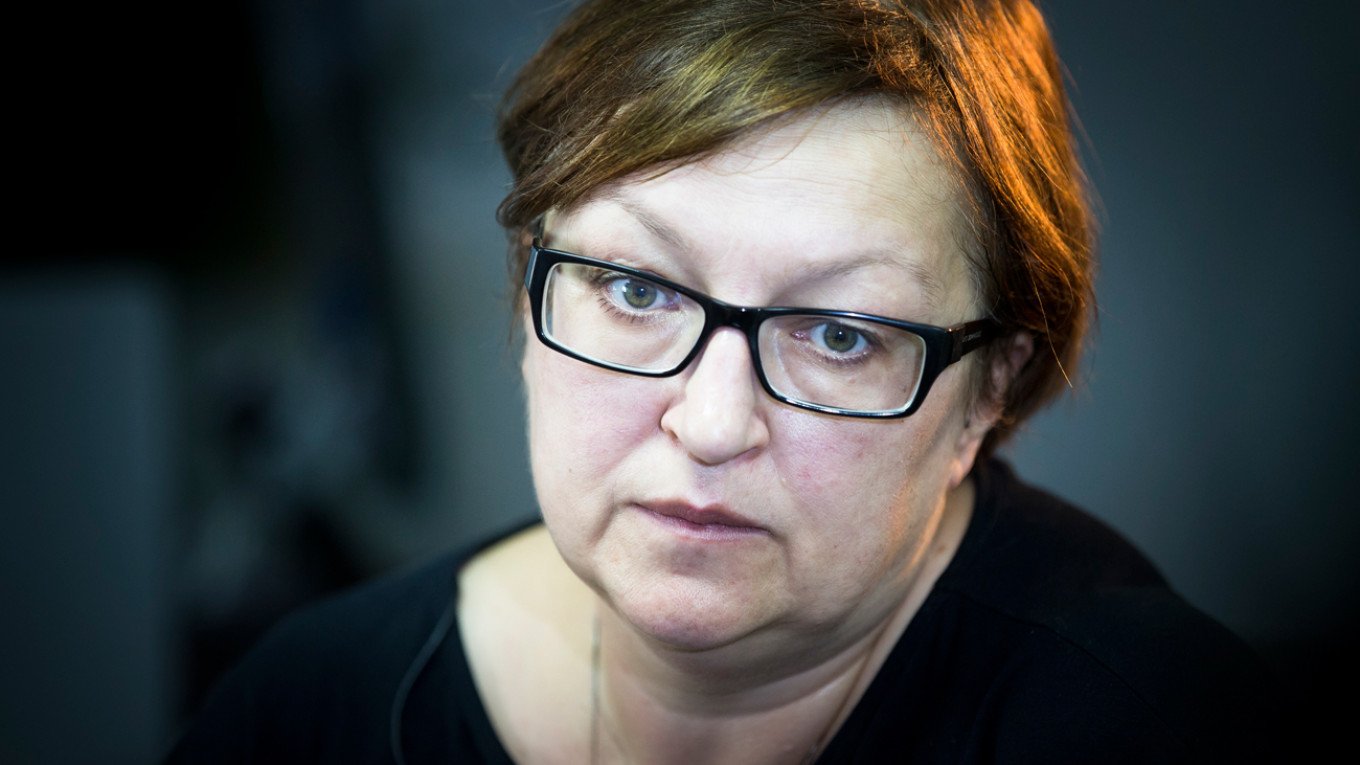
TRANSNATIONAL REPRESSION
Roundtable: How Foreign-Repressive Governments Target Women Journalists in the West
Roundtable: How Foreign Repressive Governments Target Women Journalists In The West
Transnational Repression is killing free speech and is the next big threat to freedom of the press in sovereign states - organized by CFWIJ, in collaboration with PDI at the University of Ottawa and WIJ Insititute Canada.
🗓️ October 23, 2024
🕐 1:00PM - 4:00PM
📍Professional Development Institute (PDI) at the University of Ottawa
What is Transnational Repression and how does it affect women journalists? Click on the button below for CFWIJ and WPF’s in-depth analyses and reports on this current crises.

Meet our Speakers
Lead Organizer
Founding director of the Coalition For Women In Journalism and seasoned journalist, Kiran has reported on conflicts, human rights and press freedom issues across the Middle East, South Asia, and Latin America. Her leadership at CFWIJ has been instrumental in advocating for the safety and rights of women in media.
Lead Organizer
Daniel Stanton, a former executive manager at the Canadian Security Intelligence Service (CSIS), now serves at the University of Ottawa's Professional Development Institute. Stanton has become a prominent voice on the issue of transnational repression and is an active member of the Foreign Interference Commission. He is also a strong advocate for press freedom, particularly focusing on the protection and rights of women journalists.
Lead Speaker
Masih is an Iranian-American journalist and activist, best known for her advocacy for women’s rights in Iran. Based in the United States, she has been a target of transnational repression due to her outspoken stance against the Iranian regime. Masih is a fearless voice for free speech and human rights, with a global following through her journalism and activism.
Panelists
Yana Gorokhovskaia
Freedom House
Yana Gorokhovskaia is the Research Director for Strategy and Design at Freedom House, focusing on transnational repression and global freedom, with her recent reports addressing issues like exiled journalism and flawed elections.
Rachel Pulfer
Journalists For Human Rights
Rachel Pulfer, President of Journalists for Human Rights, has been instrumental in evacuating and relocating journalists globally. At the roundtable, she will discuss the challenges exiled journalists face in Canada.
Brendan De Caires
Pen Canada
Brendan de Caires is the Executive Director of PEN Canada, a nonprofit dedicated to defending freedom of expression and supporting exiled writers in Canada.
Arzu Yildiz
Journalist
Arzu Yildiz, a once prominent investigative journalist in Turkiye, was forced into exile in Canada following Erdogan's crackdown on the media. Even there, she continues to face threats and physical attacks. In 2022, Erdogan placed her on a hit list, and her home was broken into shortly after. CFWIJ has supported her, raising awareness with Canadian agencies to provide protection. At the roundtable, she will share her experiences of being targeted.
Noura Aljizawi
Munk School of Global Affairs
Noura Aljizawi, Senior Researcher at the Citizen Lab, Munk School of Global Affairs, focuses on digital authoritarianism, disinformation, and digital transnational repression, with an emphasis on marginalized communities.
Marie Lamensch
Concordia University
Marie Lamensch, Program Coordinator at the Montreal Institute for Genocide and Human Rights Studies, will discuss transnational repression, drawing from her recent article, "Ottawa Can Do More to Stop Transnational Repression."
Participating Organizations

In the past five years, the Coalition For Women In Journalism’s (CFWIJ) Women Press Freedom (WPF) initiative has documented an alarming increase in attacks and threats against journalists living abroad, particularly in countries such as Canada, the United States, the UK, Australia, and throughout Europe.
These threats reflect a broader international issue affecting hundreds of journalists and activists who have challenged dictatorships and anti-democratic regimes worldwide. The ripple effects of this repression impact millions within diaspora communities residing in Western nations, including Canada, which has become a refuge for many.
Our research reveals that the same forces targeting women and LGBTQI+ journalists are also behind attacks on global human rights defenders, civil society members, and diaspora communities. Countries like Iran, China, Russia, Saudi Arabia, along with others such as India, Pakistan, Turkiye, Brazil, Mexico, Egypt, and Venezuela, are among the most egregious offenders.
In the last four years, the Women Press Freedom initiative has documented over a dozen cases of women journalists being targeted in Canada alone. We have closely monitored the various methods used by these nations to suppress dissent beyond their borders. This roundtable aims to bring together our partners to examine the threats of transnational repression within democratic states and seek investigative and policy-driven solutions.
The event will focus on Canada, featuring case studies from Europe and the United States, to deepen our understanding of this cross-border issue. Our goal is to foster a nuanced conversation with journalists, researchers, policymakers, government officials, and civil society members invested in the safety of journalists and activists living in democracies. Ultimately, we hope to recommend policies that can help address and end the problem of transnational repression.


IN FOCUS











































